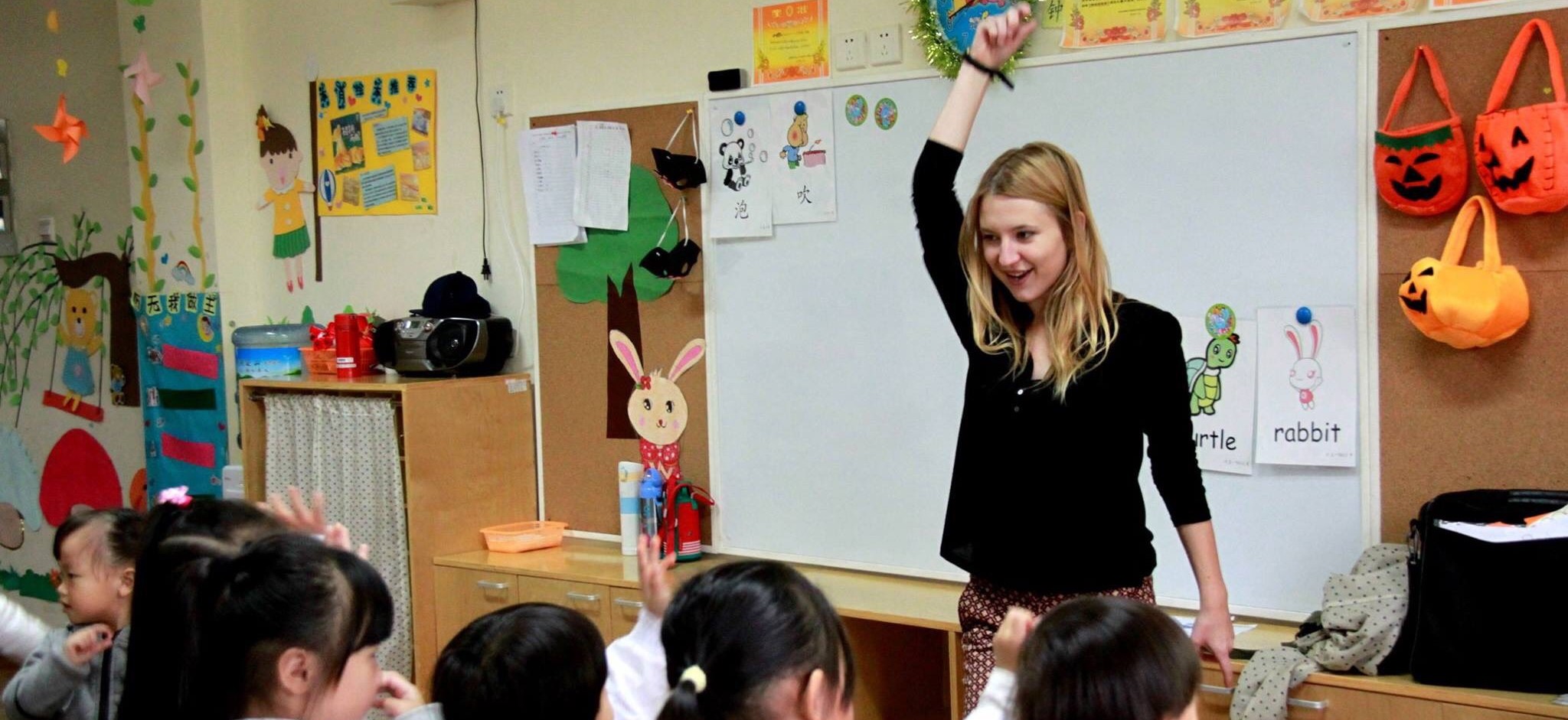By Josh Butterworth. Josh is Impact Teaching’s Thailand Program Coordinator, and he lives in Thailand.
I can remember clearly the sheer rush of excitement that overcame my friends and I the first time we saw our teacher outside of school. Whether it was next to the bananas in the supermarket or beside McDonald’s on the high street is irrelevant, and to be honest I can’t remember, but that overwhelming urge to giggle and point will never be forgotten. Not once had I stopped to consider what type of person my teacher was, their character, hopes and dreams. But then, presented with them on a Saturday morning far from the classroom, I was fascinated.
 Looking back and thinking about my teachers now, as an adult and considering my own teaching experience, I can see a far clearer picture of what type of people they were. This got me thinking, were they extroverts or introverts? And how did this influence their teaching? Drawing from my time as a student and as a teacher in China and Thailand, working with a wide variety of people, I’m going to explore what it’s like to teach abroad as an extrovert and as an introvert. My hope is to provide you with the information you need to decide whether teaching abroad is right for you, enjoy.
Looking back and thinking about my teachers now, as an adult and considering my own teaching experience, I can see a far clearer picture of what type of people they were. This got me thinking, were they extroverts or introverts? And how did this influence their teaching? Drawing from my time as a student and as a teacher in China and Thailand, working with a wide variety of people, I’m going to explore what it’s like to teach abroad as an extrovert and as an introvert. My hope is to provide you with the information you need to decide whether teaching abroad is right for you, enjoy.
First of all, let’s clarify what I mean when I say extrovert and introvert. People who gain energy from social situations, make quick decisions, come across as outgoing and enthusiastic, and thrive as part of a team can be classified as extroverts. Introverts enjoy time alone, take their time before speaking or taking actions, seem more reserved or shy, and generally prefer to work alone. I would classify myself as more of an extrovert, however, there are times when my introverted characteristics shine through. It is my opinion that we are all a combination of both, but usually one is stronger than the other.
As an extrovert, let me tell you about my experience as a teacher. I believe that two of the main challenges an introvert might struggle with came more naturally to me, and I was able to face them with confidence. The first was becoming part of the team at a new school, and the second was standing up in front of a class for the first time. When you are naturally more assured in yourself and embrace meeting new people, assimilating into a new school is not a daunting task. By no means am I saying that this is not possible for an introvert, but it may require more effort and focus.
 During my time in China where I trained with a diverse group of people, and in Thailand where I was part of a big team of foreign teachers, I have witnessed the success of many introverts in the classroom. People who at first seem shy grow into the job, and the relationships they build with students and colleagues are often deeper and more thoughtful. People who are introverted also have a greater ability to empathize and support students that may be struggling with confidence, taking their time to help them and achieve their best. Of course, extroverts are very capable of this too, but identifying students that are struggling and being patient with them may not come as naturally.
During my time in China where I trained with a diverse group of people, and in Thailand where I was part of a big team of foreign teachers, I have witnessed the success of many introverts in the classroom. People who at first seem shy grow into the job, and the relationships they build with students and colleagues are often deeper and more thoughtful. People who are introverted also have a greater ability to empathize and support students that may be struggling with confidence, taking their time to help them and achieve their best. Of course, extroverts are very capable of this too, but identifying students that are struggling and being patient with them may not come as naturally.
From time to time, I have been guilty of carrying lessons on pure energy and vibes alone, which can be good but isn’t always the best for learning. It can work well for younger children but not as much for older teenagers or young adults. This may go some way to explaining why extroverts are more drawn to young learners and introverts often prefer students who are slightly older. Also, introverts are far more likely to plan their lessons to account for every possibility and deliver content with maximum efficiency. This can lead to greater academic success, which is usually more important for older students, combining this with their strong relationships is a ticket to success.
However, there can be drawbacks for introverts when it comes to motivating themselves to socialize with colleagues or stand up in front of their classes and speak. My flat mate, who did give me permission to talk about him, classes himself as an introvert. He teaches at a school in Chiang Mai where we live. On an average day he will go into school, teach his lessons and get his head down to work during free periods, or rest. Other teachers socialize and joke around, but he prefers to make sure he is prepared for his lessons and recharge his batteries so that he is ready for them. Most importantly though, he always comes home with a smile on his face telling me how he has had a great day, his students were brilliant and gave him the energy he needed to keep going.
 In summary, whoever you are and whether you class yourself as an extrovert or an introvert, you have what it takes to be a brilliant teacher. Providing you work hard, always try your best, care for your students and seek to make a positive impact on their lives, you can do it. A recent US study found that 50.7% of Americans are introverts, and 49.3% are extroverts. That does not mean the split of our teachers is the same, but my guess is that it’s not far off. If you are an extrovert, you probably have no worries about your ability to teach, and nor should you. I want to get through to those of you who are more introverted and might not have the confidence to become a teacher abroad. My message to you is that plenty have successfully walked the path before and plenty more will do so in the future. My question is, will you be one of them?
In summary, whoever you are and whether you class yourself as an extrovert or an introvert, you have what it takes to be a brilliant teacher. Providing you work hard, always try your best, care for your students and seek to make a positive impact on their lives, you can do it. A recent US study found that 50.7% of Americans are introverts, and 49.3% are extroverts. That does not mean the split of our teachers is the same, but my guess is that it’s not far off. If you are an extrovert, you probably have no worries about your ability to teach, and nor should you. I want to get through to those of you who are more introverted and might not have the confidence to become a teacher abroad. My message to you is that plenty have successfully walked the path before and plenty more will do so in the future. My question is, will you be one of them?
We have exciting opportunities in China, Thailand, Poland and Hungary.
Our programs all offer a wide range of teaching options, from kindergartens to universities.
Let us help find the best place for you, get in touch for a chat and we can start your teach abroad adventure today.




